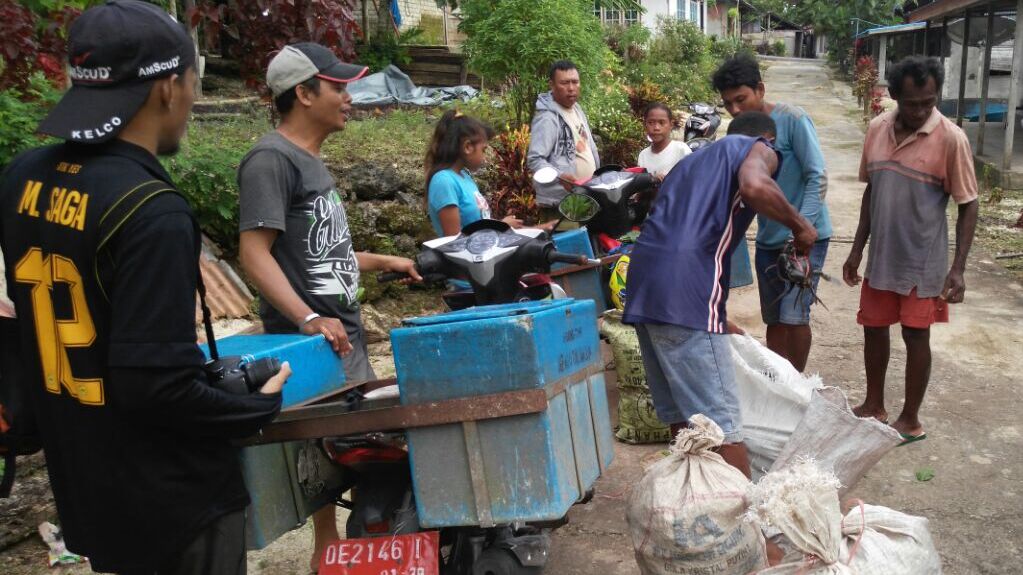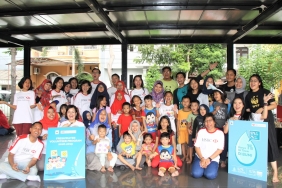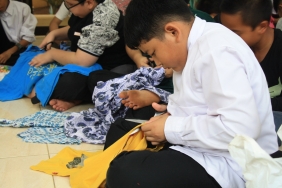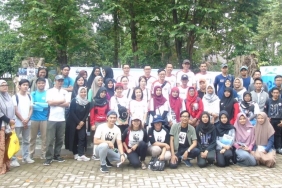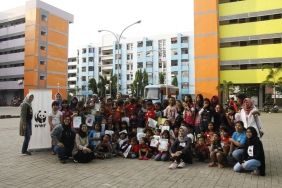TO ACCELERATE MANGROVE CRAB FISHERIES IN KEI, MSC AND WWF-INDONESIA FOUNDATION HOLD SERIES OF TRAININGS
FIP or Fishery Improvement Programs are an initiative towards sustainable fisheries practices. Mangrove crab FIPs in Kei have evolved and involved more and more parties, not least the government, which has an important role in the process.
On December 8-9, 2020 the Marine Stewardship Council (MSC) and WWF Indonesia Foundation collaborated to hold a series of trainings for parties involved in FIPs in Langgur, Southeast Maluku.
A total of 25 participants representing the Marine and Fisheries Service of Maluku Province, Marine and Fisheries Service of Southeast Maluku Regency, Fish Quarantine and Quality Control Agency, Regional Planning and Development Agency, Pattimura University, KUB Wear Manun fishing group and collectors attended the 2-day activity.
"Training activities like this are important to be followed and known not only by the apparatus but also by business actors, both fishing groups and collectors so that efforts to improve fisheries can be carried out as a whole from upstream to downstream. In addition, it also increases our knowledge in terms of standardization and product traceability," said Nicodemus Ubro, Head of the Southeast Maluku Regency Fisheries Service, opening the training.
Extension of Fisheries Standards and Chain of Custody
MSC equipped participants with MSC standard material and its application through 2 types of training, namely MSC Capacity Development Level 1 and Chain of Custody (CoC) Standard. With the in-class training method, participants received materials and discussed in the training session.
"Mangrove crab FIPs are a growing fisheries improvement collaboration between fishermen and WWF that deserves encouragement from all parties. These two trainings aim to enhance the role of the government and stakeholders in the region and have an in-depth understanding of the MSC sustainability standard.
By realizing the respective roles of all parties in FIP implementation, this initiative will grow rapidly and achieve fisheries sustainability." Said Hirmen Syofyanto, MSC Indonesia Program Director.
Participants learned about the 3 Principals of the MSC Fisheries Standard, the Risk-Based Framework (RBF), the MSC link to fisheries improvement and fisheries improvement tools on the first day. The MSC Fisheries Standard covers 3 principals, namely Stock Sustainability, Reduced Ecosystem Impact and Effective Fisheries Management.
On the second day, participants explored the 5 principles of the MSC Chain of Custody standard, the 3 versions of the Chain of Custody and audit preparation. CoC certification provides assurance that products with the MSC ecolabel come from certified fisheries and can be traced along the supply chain to a certified source.
In between the lectures, participants also had Group Discussion sessions to discuss Fisheries Case Studies, developing Chain of Custody audit schedules and Q&A.
"The collaboration and support provided by these stakeholders can certainly be a good asset, as well as positive energy in the implementation of the mangrove crab FIP in the Kei Islands," added Andreas Ohoiulun-Project Executant WWF IBAS.
In this series of MSC and WWF activities, participants not only get a deepening of the technical material of the MSC sustainable fisheries standard, but also the principles of ensuring traceability of certified products as well as a joint agreement on the strategy for developing a mangrove crab FIP Action Plan in Kei waters.
"This two-day training is very useful for us mangrove crab fishermen here. Previously we only heard what the MSC was and since this training we have begun to understand more about what the MSC is. KUB Wear Manun is ready to participate towards MSC ecolabeling," said Yohanis Songbes, Chairman of KUB Wear Manun.

